
The Free Press

Watch this video of a grieving woman in Gaza cry out. She says: “All this is because of the dogs of Hamas.” She’s immediately—literally—silenced.
Why?
Since taking power in a 2007 coup, Hamas has violently repressed all opposition to its rule. There is much to repress: recent Palestinian survey data shows most Gazans distrust Hamas, want an alternative government, and prefer economic development over war. But their individual voices are rarely heard. Those who speak out face prison and torture.
Some foreign journalists try to cover these voices but face deportation for doing so, while others show little interest in Palestinian grievances unrelated to the conflict with Israel.
My organization, the Center for Peace Communications, has been helping the population breach this communications blackout by interviewing Palestinians across the Strip, from all walks of life, about their travails and aspirations. A mother who dreams of her children getting a proper education. A photojournalist punished for taking pictures. A young couple who hopes to start a family, outside of Gaza.
Earlier this year, we released their testimony in a series called Whispered in Gaza: 25 short segments, using video animation to protect their identities, accompanied by Gazan polling, rights reports, and reportage.
Following the October 7 Hamas attack on Israel, we reconnected with these and other Gazans to gather new testimony. We sought to understand their reaction to the Hamas assault and their views of the developing war, and to document their struggle to survive amid cascading tragedies.
We are partnering with The Free Press to showcase their voices in a new series called Voices from Gaza, which you can watch below.
In the first episode, a resident of Gaza City shares widespread Palestinian anxiety that international humanitarian aid for Gaza will not reach the people who need it. In Gazans’ experience, he says, “When Hamas distributes the aid, only Hamas members get the aid.” The same applies to Gaza’s healthcare system, where “Hamas families get preferential treatment” and even the most urgent needs of others “could be delayed for a long time so that Hamas loyalists are treated first.”
When the October 17 explosion in a Gaza hospital triggered an international debate over who was to blame, Gazans we spoke with felt the terms of the debate were wrong. “I’d rather tell you who’s responsible for making people need to go to the hospital in the first place,” a speaker says in Episode Two. “Hamas bears responsibility for all the wars, but we’re the ones who pay the price.”
The same rejection of Hamas’s war footing was shared by a woman we spoke with who took umbrage at Hamas claims that Gazan civilians, not Hamas fighters, had perpetrated the October 7 atrocities targeting Israeli civilian men, women, and children. “If I saw a hostage or knew where they were,” she explains in Episode Three, “I’d take them and hide them in my home. I’d bring them back home [to Israel].”
Contrary to Hamas propaganda, she says, “Ending Hamas is the demand of young and old alike in Gaza.” For her family, the demand is deeply personal: “My older brother was murdered by Hamas in front of our eyes,” she says. “Fifty-four gunshots all over his body, his blood spilling in front of his children.”
“Ashraf,” a 28-year-old evacuee from Gaza City now residing in Khan Younis, saw his brother murdered by Hamas as well. Both had been involved in peaceful demonstrations against Hamas. We wanted to know whether such activists would support the toppling of the regime if it came with the heavy human toll of an Israeli ground assault.
“We welcome any change that will save us from this indignation called Hamas,” Ashraf says in Episode Four, “whether by Jews or non-Jews.” But he also worries that the war will end with Hamas in place: “If Hamas remains, there might, for example, be a truce, and in a year or two Hamas would repeat the same scenario. In those two years, I’ll go backwards 50 years—and I need two good years just to get back on my feet. I have no house, no life, nothing.”
Hamas’s grip on portions of Gaza is already slipping away, however. In Episode Five, “Fadi,” a youth activist from Gaza City who has also fled south, describes growing chaos in Khan Younis as the remnants of Hamas’s security apparatus vanish into the ground. He also explains how some civilians are stepping up to fill the vacuum. “We’re forming youth councils and defense committees to organize people in the bread lines, or other stations,” he says.
When the present war ends, hopes for reconstruction and a decent government in Gaza will rest largely on the Palestinians who join a post-Hamas administration of the territory. In the past, Gazans have shown great courage in trying to bring change on their own. Veterans of Gaza’s 2019 anti-Hamas street demonstrations, for example, braved gunfire and prison to make their voices heard, but received neither support nor solidarity from the outside world.
In drawing attention to Gazan voices opposed to Hamas, we aim to show that a different, brighter, and more peaceful future is possible—one that merits international support—because of the Palestinians in Gaza who yearn and strive for it. As one of the speakers, who you can hear below, in our original series put it, “The makings of our dream are all here.”
Joseph Braude is president of the Center for Peace Communications.
To support our work, and our efforts to bring on-the-ground coverage of the war to you, become a Free Press subscriber today:


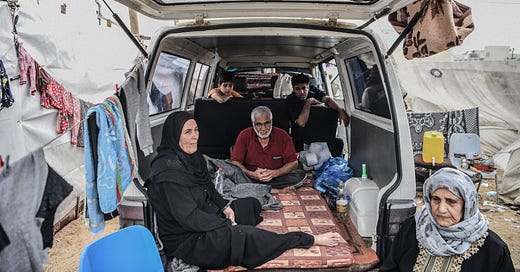




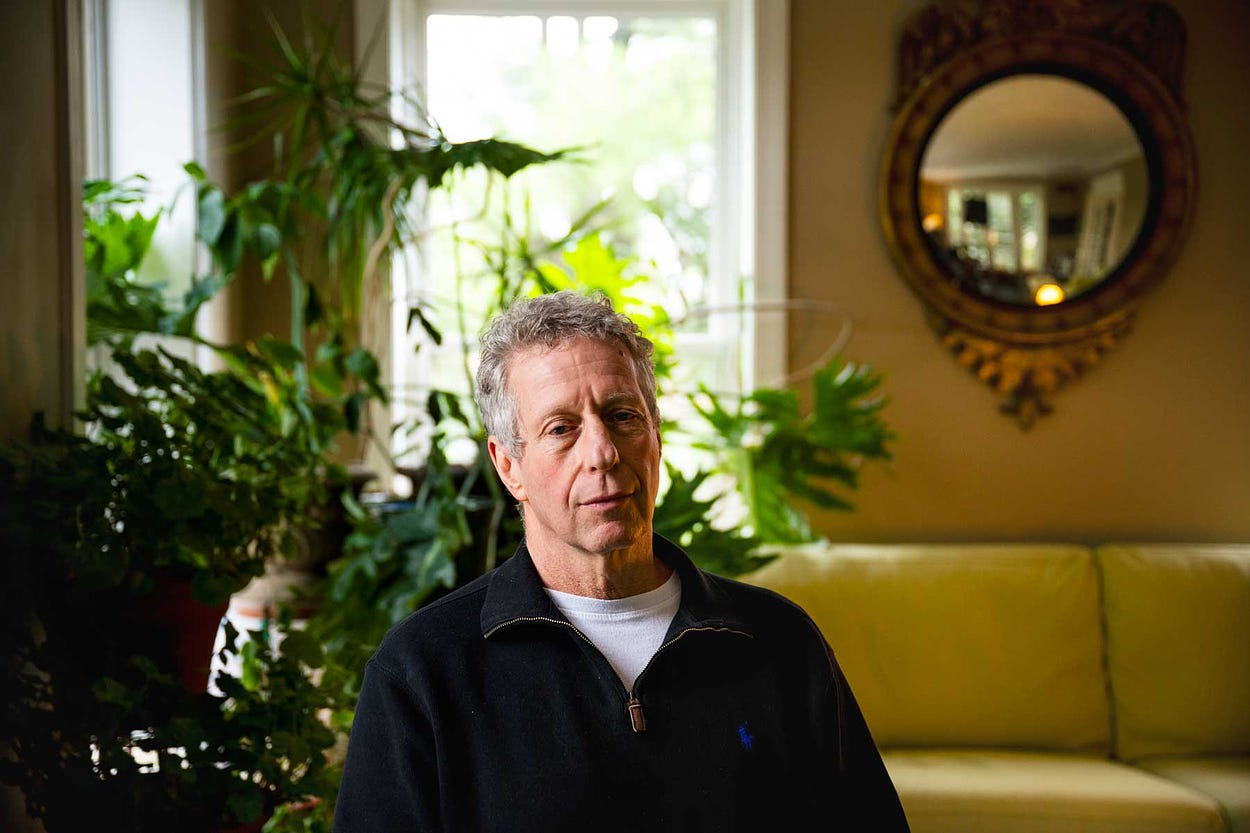

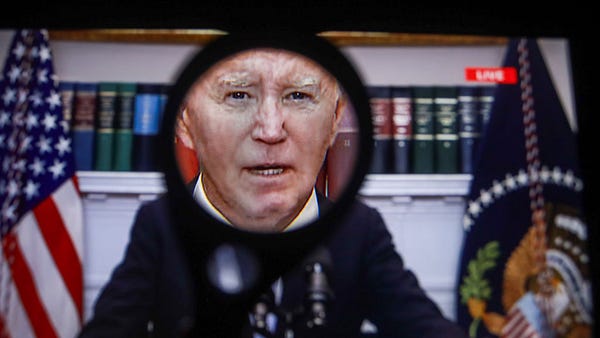

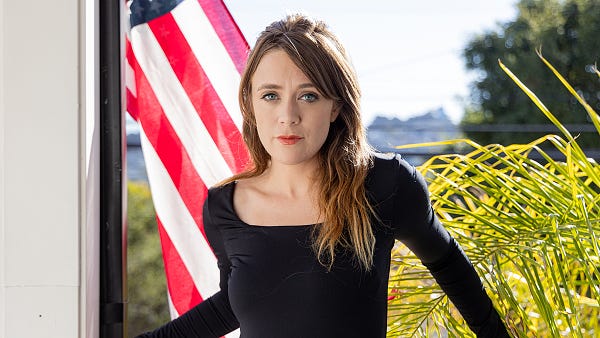

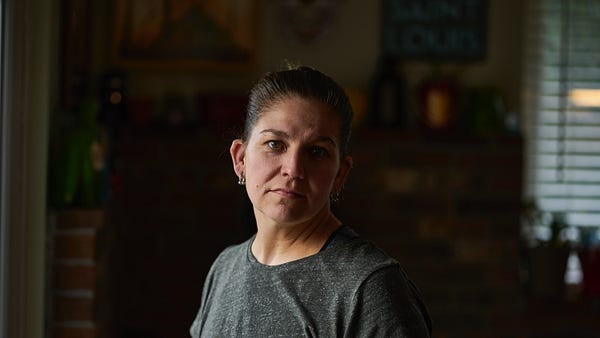

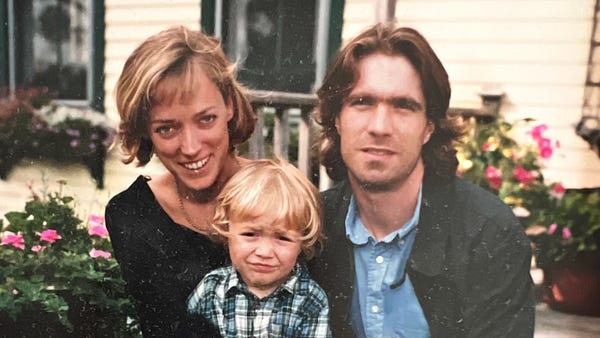

Let gaza and part of west bank form a condominium with Jordan , the other "Palestine. " then it will be river to the sea. just like those chants for genocide of the Jews. Tlaib says "coexistence" ....she means an Arab majority state to replace Israel with presumably a few Jews like the deranged neuteri karta. She is transparent in her hypocrisy and hate.
This would explain why so many Gazans are greeting the IDF as their liberators, eh?